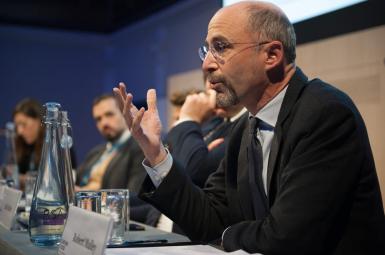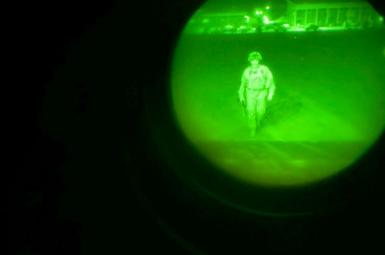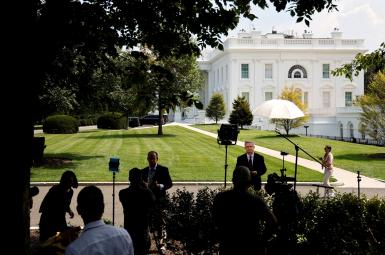
Biden Wields Stick With US Airstrike Against Iran-Backed Militia In Syria
Thursday’s United States military airstrike in eastern Syria on Iran-backed militia facilities [February 25], authorized by President Joe Biden as a “proportionate” response to recent attacks against US and coalition personnel in Iraq, as the Pentagon says, may signal the US administration losing patience with Iran’s rulers.
On Wednesday, while stressing that Washington believes diplomacy is most effective way to block Iran from acquiring nuclear weapons, State Department spokesman Ned Price warned that US patience with Iran on returning to discussions over its 2015 nuclear deal with world powers was “not unlimited.”
The Biden administration has made recent moves envisaged as offering carrots to Iran, easing restrictions on Iranian diplomats’ movements in New York, where they attend the United Nations, rescinding Trump’s claim that all UN sanctions had been reimposed on Iran, and a Washington’s likely approval for South Korea releasing some of Iran’s $7b frozen funds. The strike in Syria may be the stick – following Washington’s insistence last week that there will be no easing of sanctions before talks with Tehran and major powers over reviving the 2015 nuclear deal, known as the JCPOA (Joint Comprehensive Plan of Action).
Thursday’s attack killed 22 Iraqis, according to the London-based Syrian Observatory for Human Rights (SOHR), which said the target was facilities used by militant Shia groups including Kata’ib Hezbollah and Kata’ib Sayyid al-Shuhada, which are allied to Iran. The attacks in Erbil on February 19, which hit al-Harir military base, hosting US troops, and Erbil international airport, killed a contractor and wounded nine others, including a US soldier. An unknown group called the Guardians of Blood claimed responsibility.
“We are very deliberative in our approach as you would expect us to be,” US Secretary of Defense Lloyd Austin said. “We allowed and encouraged the Iraqis to investigate and develop intelligence for us, and that was very helpful to us in refining the target.”
A US official, speaking anonymously, told Reuters that the strikes sent a signal that, while the US wanted to punish the militias, it did not want the situation to spiral into a bigger conflict. The official added that Biden was presented with a range of options and one of the most limited was chosen.
Iranian officials have yet not commented on the incident. Foreign Minister Mohammad Javad Zarif spoke by phone with his Syrian counterpart Faisal Mekdad after the attack. “The two sides stressed the need of the West to adhere to UN Security Council resolutions regarding Syria,” the Iranian government news agency IRNA reported on Friday.
Iran condemned the February 19 attack in Erbil. Foreign Ministry spokesman Saeed Khatibzadeh said Iran rejected “any action that disturbs the peace and order” in Iraq.
Kremlin spokesman Dmitry Peskov told reporters on Friday that Moscow was following developments and maintaining constant contact with its ally Damascus. Konstantin Kosachev, the head of the international committee of the Federation Council, the Russian parliament’s upper house, told reporters that the US airstrike would disrupt the process of normalization of relations between Tehran and Washington within the frame work of the JCPOA.









